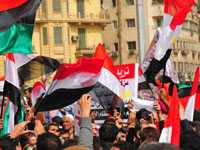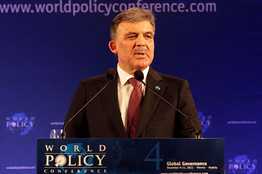“Israeli media are overly critical; when you read an op-ed column in an Israeli paper, you think that Israel will be Iran within months.”
12 December 11 13:02, Adi Ben-Israel
Adv. Alan Dershowitz, who is known as the state of Israel’s attorney, and who defends Israel’s positions in the US, attacked the Israeli press today, claiming that senior commentators are overly critical of the government. Dershowitz also spoke about the wave of legislation that allegedly limits the media’s freedom of speech.
“When you read an op-ed column in an Israeli publication, you immediately think that Israel will be like Iran within six months, and that women will sit in the back of the bus like in Alabama, and that the government is fascist. The Israeli media exaggerate. You must understand that there is no such thing as an internal Israeli matter; everything that happens in Israel ends up on the cover of the “New York Times” and around the world. If Israel has a problem at the Mugrabim bridge in Jerusalem, it turns into an international issue.”
Dershowitz called for calm to be restored and for the criticism to be toned down. “Israel is not going to become fascist. I oppose all forms of censorship and limiting freedom of speech, but” Dershowitz said, “I suggest that people take responsibility for the exaggerations they are reporting in the media.”
Dershowitz criticized the phenomenon of excluding women, and certain rabbinical rulings that he claims deviate from the path of Judaism, and exist “only in the minds of a few demented rabbis,” and suggested: “Let’s fight them using their own framework of ideas.”
Dershowitz also criticized the bill that calls for the volume of muezzin speakers in mosques be lowered, and said that the fact that Israel is a Jewish state, “raises the bar for sensitivity on every issue, for better or worse.” On hatred of Israel, Dershowitz said that it ran deep, and that it was connected with anti-Semitism.
Dershowitz claims that it is easy for him to defend Israel throughout the world, and explained why: “Every time that I speak about Israel and I turn to the audience and say: I want you to name one country in the world that faces the kind of threats that Israel faces, and has such an impressive record of upholding human rights, and the rule of law. Not one person has ever been able to think of such a country.”
Dershowitz criticized the Palestinians, saying that they were not ready to hold political negotiations without preconditions, and complimented Netanyahu: “He wants to be tough on security issues, and to bring about a stable peace with security. I was at the UN in September when Palestinian Authority President Mahmoud Abbas (Abu-Mazen) gave a speech that Arafat would have been proud of. Both sides need to be ready for painful compromises. Netanyahu is ready.”
In his comments about the Iranian issue, Dershowitz said that President Barack Obama was committed to preventing Iran from achieving nuclear weapons, and said that he hoped that Israel would not take unilateral military action. However, if Israel has to do so for security reasons, “As an international lawyer, I will defend Israel.”
Dershowitz also said that Israel did not need to apologize to Turkey. “I do not believe that an Israeli apology to Turkey will improve relations between the two countries. Turkey has altered its approach, and is turning to the Muslim world after being rejected by Europe. It is using the apology as an excuse, and I do not think that Israel needs to apologize to Turkey.
“Turkey never apologized for the Armenian genocide. That takes nerve! Turkey is asking someone to apologize? They have never apologized for murders that they committed!”
When asked about the possibility that Turkey would sue IDF soldiers who participated in the takeover of the Marmara, Dershowitz answered: “Let’s see Turkey do that. I am ready to form a team of experts that would defend IDF officers against any country seeking to sue them overseas.”
Published by Globes [online], Israel business news – www.globes-online.com – on December 12, 2011
© Copyright of Globes Publisher Itonut (1983) Ltd. 2011
via Alan Dershowitz: Apology won’t improve relations with Turkey – Globes.





